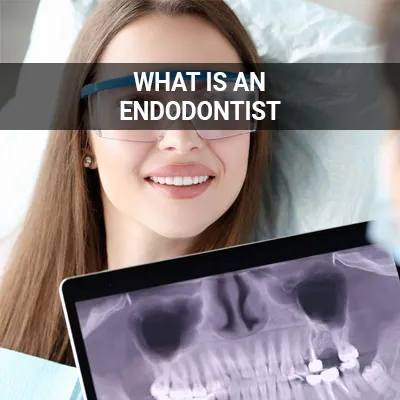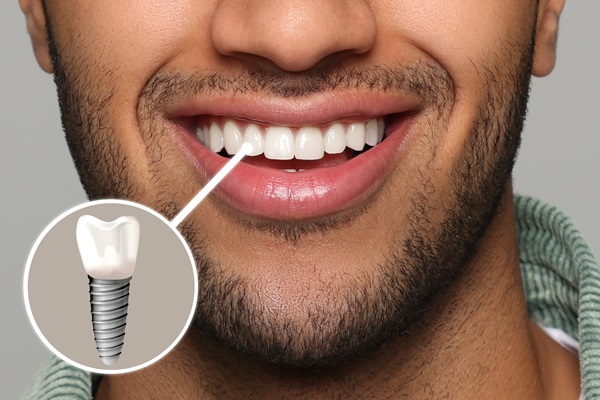Do I Need a Root Canal Bayside, NY
Root canals can save or repair teeth that have been damaged by infection or decay. When a tooth does not get needed root canal treatment, the surrounding tissue may become infected and surrounded by abscesses. Root canals consist of removing the inflamed and infected nerve and pulp of the tooth.
Root canals are available at Vital Dental of Bayside in Bayside and the surrounding area. Do not put off saving your tooth. Call us today at (718) 225-4888 to schedule an appointment and learn more.
Resolving Pain With Root Canals
The dental issues that cause the need for root canals often make patients uncomfortable. At the bare minimum, patients will experience an excruciating toothache. These toothaches may be spontaneous, occurring even when the patient is not using the tooth. Eventually, this may evolve into a severe headache. Many patients often do not make the connection between the toothache and the headache.
A tooth that is still alive will also be sensitive to heat and cold, even after the patient has removed the stimulus. The tooth may be particularly susceptible to heat sensitivity. Patients with teeth that are already dead and have become abscessed will cause pain when the patient chews or otherwise puts pressure on the tooth. Any abscesses may produce swelling or bleeding, even to the point of requiring emergency care.
“The underlying causes of root canals can often make patients uncomfortable.”
When to See a Dentist About Root Canals
Many different factors may contribute to a patient needing a root canal. These conditions can manifest themselves as various symptoms. These include chips or cracks in teeth, pain while eating or touching the tooth, persistent pain, sensitivity to heat and cold, and swollen gums.
Chips or cracks in the tooth allow empty spaces for bacteria to settle in and cause infection and inflammation, while tooth sensitivity may be a sign of severe decay or nerve damage. In general, toothaches are a sign a patient should see a dentist.
Tooth sensitivity may linger longer when the blood vessels and nerves in the tooth have become infected or damaged. Swelling may also come and go. It is frequently associated with abscesses, which may be accompanied by unpleasant taste and odor.
Infected teeth may also feel looser than healthy teeth, due to nerve death softening the bone. Furthermore, teeth may turn grayish-black when the roots have been damaged and the internal tissue has been broken down.
“These conditions can manifest themselves as various symptoms.”
When Root Canals Are the Only Option
Root canal treatments are necessary when the pulp of the tooth has become inflamed or infected and needs removal. This may happen due to deep decay, cracks or chips in the tooth, faulty crowns, and repeated dental procedures. Patients should also be warned that facial trauma may still damage the pulp even when the tooth does not have visible chips or cracks. Leaving pulp inflammation or infection untreated may lead to pain or the formation of an abscess.
When left untreated, teeth with damaged pulp eventually die. This can negatively impact your overall oral health, as well as make it difficult to eat and chew. Root canals can help preserve the remaining tooth. The procedure may be followed by the placement of an implant or a crown.
“Root canal treatments are necessary when the pulp of the tooth has become inflamed or infected and needs to be removed.”
Check out what others are saying about our dental services on Yelp: Do I Need a Root Canal in Bayside, NY
Alternatives to Root Canals
Root canals can help address any issues caused by infection and decay. However, for such treatment to be successful, there must be enough of the natural tooth remaining to save. While it is best to save and maintain natural teeth whenever possible, some teeth may be beyond repair. Teeth with severe fractures or cracks extending below the gum line, for example, may be better suited for extraction.
If extraction is necessary, patients may want to consider getting dental implants. This tooth replacement option looks, feels, and functions like a natural tooth and will help maintain the appearance of the smile. Dental implants consist of artificial tooth roots surgically placed into the jaw to hold an artificial tooth (also known as a crown or pontic) in place. Our team can help determine which option is best for you.
“However, for such treatment to be successful, there must be enough of the natural tooth remaining to save.”
Questions Answered on This Page
Q. What kind of pain can be addressed by a root canal treatment?
Q. Do I need a root canal procedure?
Q. When are root canal treatments necessary?
Q. Are there any alternatives to root canals?
Q. Do I need an emergency root canal?
People Also Ask
Q. How common are root canals?
Emergency Root Canals
Since every tooth that requires a root canal is in the process of dying, patients should consider every root canal an emergency procedure. Delaying treatment will only increase the chances of pulp necrosis, or having the pulp of the tooth die off entirely. Only a root canal procedure or tooth extraction can reverse the symptoms of pulp necrosis. When left untreated, pulp necrosis may put patients at risk for infection, fever, jaw swelling, cellulitis, abscesses (including those in the brain), sinusitis, periodontitis, and bone loss. Contact our office immediately if you are experiencing severe toothaches when biting down or chewing, sensitivity to hot or cold temperatures (especially hot), darkening or discoloration of the teeth, swelling or tender gums, and pimples on the gums.
“Since every tooth that requires a root canal is in the process of dying, patients should consider every root canal an emergency procedure.”
Frequently Asked Questions
Q. What happens during a root canal?
A. A root canal procedure may require multiple office visits. The first step is for our team to take an X-ray to see the shape of your root canals and look for any signs of infection. Then, during the actual procedure, the dentist removes the inflamed nerve and pulp of the tooth. The inside of the tooth will be cleaned and sealed.
Q. Is it painful to get a root canal?
A. It is a common misconception that root canals are excruciatingly painful. With modern technology, getting a root canal is not much more uncomfortable than getting a cavity filled. Root canals can address the causes of any pain you have been experiencing due to the damaged tissues.
Q. How long does it take to get a root canal?
A. This varies on a case-by-case basis. However, most patients can expect one or two 90-minute appointments.
Q. What should I do while recovering from a root canal?
A. Avoid placing any pressure on the affected area, and eat carefully. Refrain from chewing on the side of the mouth where you had your root canal. Opt for soft foods until your tooth has healed. Usually, patients can manage any pain or discomfort during this time with over-the-counter medication.
Q. How long will it take me to recover from my root canal?
A. You may be uncomfortable for a few days after the anesthesia wears off, especially if you were already dealing with swelling and inflammation. You should be able to return to your normal activities as soon as the day after the procedure. If your pain worsens or does not subside, call our office immediately.
Quality Dental Services Can Transform Your Smile
By visiting us as soon as possible, our team can help get you the professional treatment you need. Instead of waiting around and allowing the symptoms to get worse, we can provide you with treatment options.
Dental Terminology
Learn More Today
For many patients, a root canal procedure is just what they need to save their tooth. We at Vital Dental of Bayside may be able to help. Call us today at (718) 225-4888 to learn more and schedule an appointment.
Helpful Related Links
- American Dental Association (ADA). Glossary of Dental Clinical Terms. 2022
- American Academy of Cosmetic Dentistry® (AACD). Home Page. 2022
- WebMD. WebMD’s Oral Care Guide. 2022
About our business and website security
- Vital Dental of Bayside was established in 2001.
- We accept the following payment methods: American Express, Cash, Check, Discover, MasterCard, and Visa
- We serve patients from the following counties: Queens County
- We serve patients from the following cities: Bayside, Flushing, College Point, Forest Hills, and Elmhurst
- National Provider Identifier Database (1417080581). View NPI Registry Information
- Norton Safe Web. View Details
- Trend Micro Site Safety Center. View Details
Back to top of Do I Need a Root Canal












